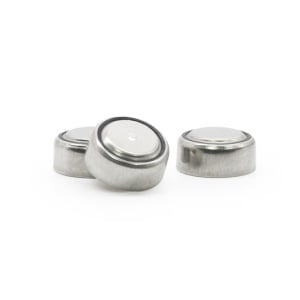
Doctors might want to be more aggressive about treating children who swallow a button battery and appear to be out of danger, a preliminary study suggests.
The small, round batteries – found in everything from watches to remote controls to toys – have become an increasingly common cause of young children's trips to the emergency room.
Possibly fatal
"Button batteries are everywhere," said lead researcher Dr Racha Khalaf. "And they're small and shiny, and attractive to kids."
Whenever a child swallows a battery – or might have swallowed one – parents should get to the hospital right away.
The biggest worry is a battery stuck in the oesophagus, according to Khalaf, a paediatric gastroenterologist at Children's Hospital Colorado in Aurora.
When that happens, the battery can quickly burn through the tissue there and cause serious, or even fatal, damage. So doctors act right away, threading an endoscope down into the throat to remove the battery.
The situation is different if X-rays show the battery has moved into the stomach. If it's not causing symptoms, guidelines say doctors can wait to see if the child passes it naturally.
But in the latest study, Khalaf's team found that even in symptom-free children, button batteries that make it into the stomach can damage the lining there. That suggests doctors should consider removing them in those cases, too, the researchers said.
Erosive damage to stomach
The findings are based on records from 68 children treated at four paediatric hospitals between 2014 and 2018. All had an endoscopy procedure to retrieve a button battery from the stomach. Many had no symptoms when they arrived at the hospital.
Overall, Khalaf's team found, 60% of the children showed some erosive damage to the stomach lining.
"We saw one major adverse event," Khalaf said.
In that case, she explained, the battery created a hole in the child's stomach because it sat there for so long. (Doctors estimated it had been there for nearly five days.)
But even in less-severe cases of stomach-lining erosion, Khalaf said, the concern is that the damage could progress: Doctors can't know if or when the battery will pass.
Button batteries are a concern both because they can cause severe injury – and because of their ubiquity in home products, according to Dr Danielle Orsagh-Yentis, a paediatric gastroenterology fellow at Nationwide Children's Hospital in Columbus, Ohio.
A rise in ingestion of batteries
In a study published in the May issue of Pediatrics, Orsagh-Yentis and colleagues found that about 100 US children per day land in the ER after accidentally swallowing a foreign object. The rate is almost double what it was in the mid-1990s.
There was a rise in ingestion of batteries, specifically – and a button battery was to blame almost nine times out of 10.
The new findings, Orsagh-Yentis said, suggest that button batteries may cause stomach erosion more often than doctors think.
"The findings are interesting, and as clinicians we need to reflect on them," said Orsagh-Yentis, who was not involved in the new research. "They underscore a need for vigilance in managing these cases."
Never leave batteries lying around
However, she said, this type of study – a review of patient records – cannot prove that removing button batteries from the stomach rather than letting nature take its course actually improves kids' outcomes.
In addition, any medical procedure has potential risks. Removing a battery via endoscope does carry a small risk of bleeding or perforation, Khalaf noted.
For parents, she said, the most important thing is to prevent these incidents in the first place: Always store battery packs in a safe place where kids can't reach them. And when replacing a battery, dispose of the old one properly – never leave it lying around.
If your child does swallow a battery – or you think he or she has – get medical care right away, Khalaf stressed.
Khalaf was to present the findings at the annual Digestive Disease Week meeting, in San Diego. Studies presented at meetings are generally considered preliminary until they are published in a peer-reviewed journal.
Image credit: iStock




 Publications
Publications
 Partners
Partners










